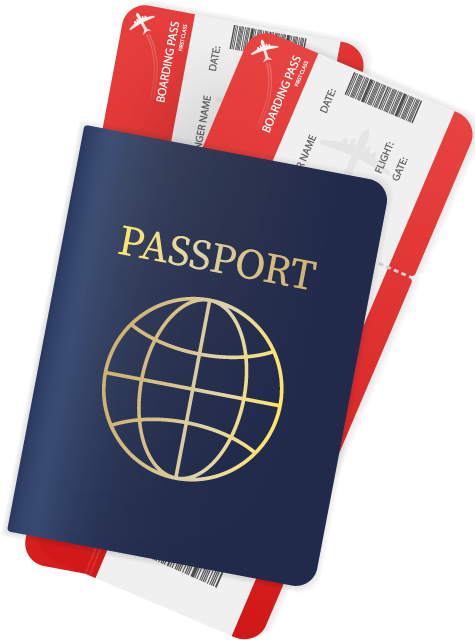
Who needs financial assistance And why?
Financing your Education
We all know that studying abroad is a very expensive process. The cost involves not only the university’s fees, but also living expenses. When you decide to apply for studies abroad, you must pay as much attention to how will you finance your education abroad as you do to your application.
Who needs Financial Assistance and why
Everyone, even students who can afford the expenses, need financial assistance. When an international student is applying for a student visa, he/she is required to show evidence of possessing adequate funds to cover at least the first year of their college education. With university scholarships, bank loans, and private funding from your own country as available options; you need to focus on careful and wise planning. If you want university funding; that is only possible in the US. Countries like the UK, Canada, Australia, and New Zealand do not usually offer students scholarships; but with loans from your own country, you can study anywhere in the world. Nowadays, with more international students applying to countries other than the US, there is a more flexible attitude towards providing financial assistance to foreign students.
Types of Financial Assistance
Types of Financial Aid available to study abroad depend mainly on the country you are applying to. Most US universities offer assistantships, fellowships, and scholarships; depending on the course you are applying to. But for countries other than the US, funding from outside sources will mostly be required.
There are three broad categories that Financial Assistance can be divided into:
- Assistantships
- Fellowships / Scholarships
- Loans
Assistantships
Eligibility:
Students are eligible for Assistantships depending on their merit
Courses Applicable:
Undergraduate (UG) level: It is relatively more difficult to be awarded assistantships at the UG level.
Graduate level: For MS courses, an assistantship is the best way of funding one’s education. Most universities do not offer financial assistance for an MBA, as the students will eventually earn more and be able to pay off loans. However, some business schools may offer MBA scholarships based on merit. PhD level: All PhD students are offered paid a stipend amount which should cover their living expenses. There are no fees for a PhD.
Types of Assistantships:
- Graduate Assistantships: These are specifically for graduate students. Students work with the admissions office or other department offices in administrative jobs.
- Teaching Assistantships (TA): The student at the Master’s level helps the professor teach undergraduate students. The job involves taking tutorial classes, conducting laboratory experiments, grading exam papers, and helping the professor clear doubts from students. To secure a TA positions, you must have very good communication skills.
- Research Assistantships (RA): The students assist with professors in laboratory work and research projects. Students selected for RA usually need to show research aptitude and analytical skills through projects, and publications.
- Tuition Waivers: The student who obtains one does not have to pay the tuition fees at the University. However, general fees (for use of University facilities like the library, computers, and health services) will have to be paid.
There are also some project assistantships, sports, or club assistantships; which are University specific.
Fellowships / Scholarships
Eligibility:
Universities provide financial assistance to students with exceptionally outstanding academic profiles. The awardees will have to score very well in their program to renew the fellowship/scholarship in the following year. The amount of scholarship offered differs according to the profile of the student.
Courses Applicable:
The university scholarship or fellowship option for financial aid is available more at the graduate level than at the undergraduate level.
Special Scholarships to Indian Students:
Some trusts or organizations offer financial assistance to Indian students who are planning to study abroad. The scholarships provided by these trusts are very course specific. Get in touch with the below mentioned institutes to confirm if you are eligible for the scholarship program offered by them.
Indian Organisations:
- KC Mahindra Scholarship
- Nehru Trust for Cambridge University and Trinity College
- Singapore International Airlines – Youth Scholarships
- J N Tata Endowment
- ITC Scholarships
- Inlaks Foundation
- Rhodes Scholarship
- Mariwala Trust
- Rotary Ambassadorial Scholarships
International Organisations:
- Fulbright Commission
- The United Nations
- AMIDEAST
- World Health Organization
Student loans
As scholarship options are extremely competitive, several banks offer loans to students to study abroad. Generally if a student gets an admission offer from a top university, the loan may be sanctioned without the requirement of a co-signer based in the country where the University is established. In other situations, the financial institutions and banks require a home country based co-signer or a co-signer residing in the country where you intend to go.
Student loans are offered under certain terms and conditions and definitely under a set scheme of interest. Indian banks offer student loans for studying abroad on a confirmed admission to a foreign university for full-time courses (that is, loans are not offered for correspondence courses.). Banks consider a student’s past academic record and offer the loan only if they find it satisfactory. All these conditions for financing education apply generally, but in the end, each bank follows its own scheme.
The Princeton Review offers Financial Counselling services that can help you identify the best bank loan to suit both your financial situation and your educational needs.
Sources in Other Countries
- University Funding/Scholarships
Some foreign banks (US-based banks) may offer student loans to international students depending on a variety of conditions. Some examples include:
- International Education Finance Corporation (IEFC)
- Sallie Mae
- Access Bank
- Bank of America
- Guaranteed Access to Education Loan Program (GATE)
- Global Student Loan Corporation (GSLC)
- Very few banks give educational loans to international students without a co-signer. This happens only if the banks have an understanding with the University the student has been admitted to. Needless to say, that these universities are the best of universities and high in rankings.
All said and done, there may still be some financial aid option waiting for you that you were unaware of, so take the assistance of the Financial Counselling team at TPR to find it!
Procedure to obtain an education finance
Learn about the resources that you could use to finance your education abroad. Find out which financing option works best for you.
The Government of India in consultation with Reserve Bank of India (RBI) and Indian Banker’s Association (IBA) has framed a Comprehensive Educational Loan Scheme. The scheme envisages a loan of up to INR 7.5 lacs for studies in India and INR 15 lacs for studies abroad. These are not stringent figures though.
However, to avail student loan of any amount, satisfying the eligibility criteria of the bank is a prerequisite. You are eligible to obtain an educational loan from any Indian bank if:
- You are an Indian national
- You have secured admission to professional/ technical courses through entrance test/ selection process
- You have secured admission to foreign University/ institution
Take a peek into other important points of consideration that the Comprehensive Educational Loans Scheme entails:
Margin
- Up to INR 4 lacs, nil for both studies in India and abroad
- Above INR 4 lacs, 5 % for inland studies and 15 % for studies abroad
Security
The Allahabad Bank has the following security/collateral security requirements for granting loans to students. However, the requirements differ from bank to bank
| Loan up to INR 4 lacs | No collateral security |
| Loan above INR 4 lacs and up to INR 7.5 lacs | Security in the form of satisfactory third party guarantee |
| Loan above INR 7.5 lacs | (a) Collateral security of suitable value. (b) Co-obligation of parents/guardians/third party along with assignment of future income of the student for payment of installments |
Rate of interest
The rate of interest is 10.75 % up to INR 4 lacs and it does not exceed the Prime Lending Rates (PLR). For a loan above INR 4 lacs, the interest rate is 11.75 % and it will not exceed PLR plus 1 percent. However, the rate of interest is subject to changes as per the specifications of RBI or the concerned bank.
Repayment holiday/Moratorium
Loans are repayable in 5 to 7 years. Repayment of both principal and interest will start after one year after completion of the course or six months after getting employment, whichever is earlier. Interest will be charged on simple basis during the period of study / moratorium period. At the commencement of repayment, the accrued interest is added to the principal amount and Equated Monthly Installments (EMIs) fixed on total outstanding amount. After commencement of repayment, the benefit of simple interest would be discontinued.
Processing fee
Most of the Indian banks do not charge any processing fee or upfront charges. The State Bank of India accepts a deposit of INR 5000 for education loan for studies abroad, which is adjusted in the margin money.
Credit delivery
You can avail the loan from the branch nearest to the place of your permanent domicile.
Disbursement
In the normal course, while appraising the loan, your future income prospect is looked into. However, where required, the means of your parent/guardian can also be taken into account to evaluate re-payment capability.
The loan is sanctioned as per delegation of powers preferably by the Branch nearest to the place of domicile. No application for educational loan received is rejected without the concurrence of the next higher authority.
The loan is disbursed in stages as per the requirement/demand directly to the Institutions/Vendors of books/equipments/instruments to the extent possible.
Follow up
The bank from which you have availed the loan can contact the college/University authorities to send your progress reports, at regular intervals.
Capability Certificate
If you are going abroad to study, some of the foreign universities require you to submit a certificate from your bankers about the sponsors’ solvency/financial capability with a view to ensure that your sponsors are capable of meeting the expenses till completion of studies. Accordingly branches can also issue the capability certificate. For this financial and other supporting documents may be obtained from you, if required.
Documents
You need to keep the following documents in place before applying for an educational loan:
Mark sheets of the last qualifying examination for school & graduate studies in India.
- Proof of admission to the course
- Schedule of expenses for the course
- Copies of letter confirming scholarship
- Copies of foreign exchange permit, if applicable
- Two passport size photographs
- Statement of bank account for the last six months of borrower
- Income tax assessment order not more than two years old
- Brief statement of assets and liabilities of borrower
If you are not an existing bank customer you would need to establish your identity and give proof of residence.
Finally, you need to hit on the right bank with the right educational loan scheme to suit your needs. Parameters to weigh the alternatives are many; as in, whether the bank provides loan for the course you are opting for and if yes, then up to what extent, the margin and security requirements, the rate of interest, proximity of bank to your residence, et al.



